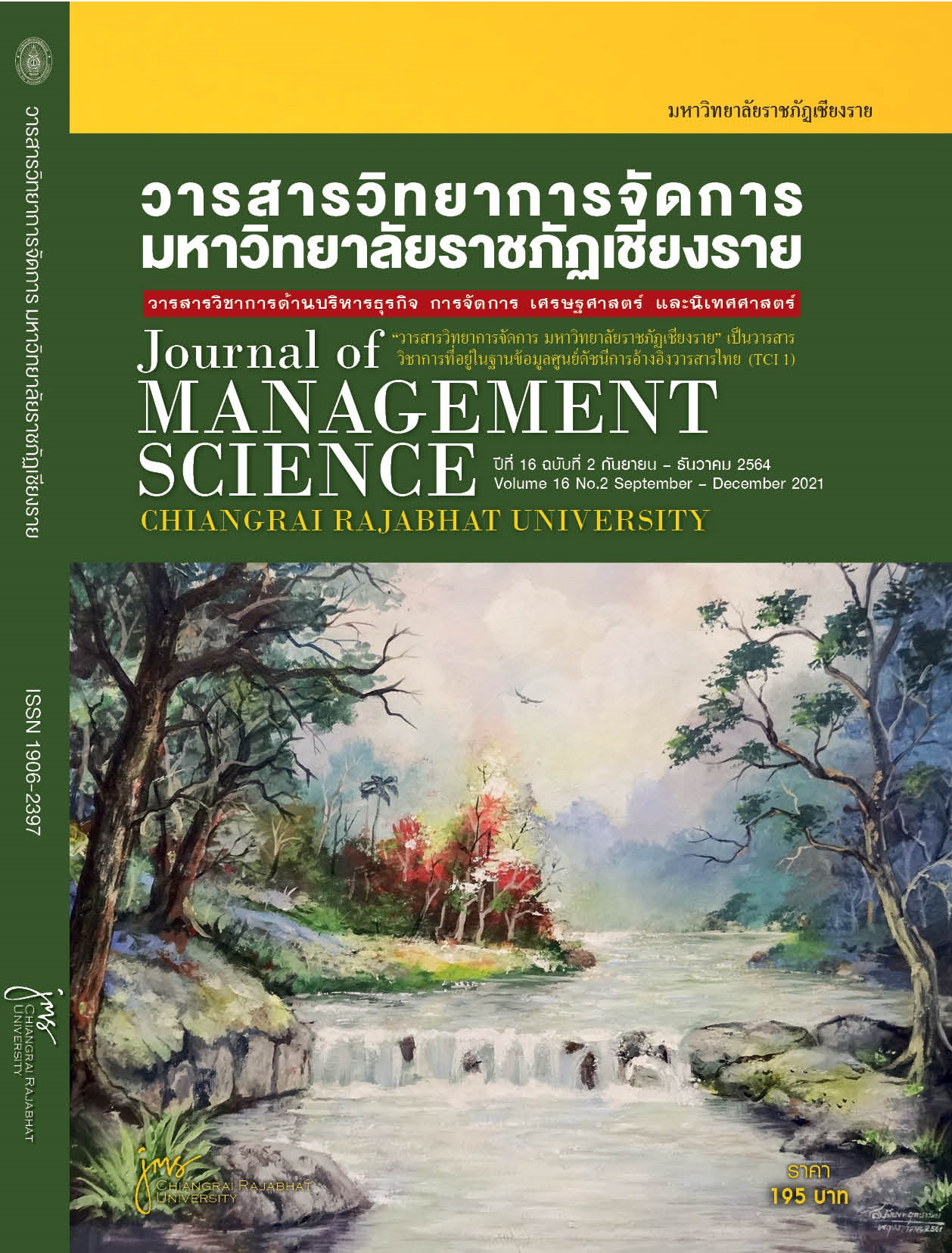Initial Trust Factors Affecting Intention to Use a Fully Automated Car
Main Article Content
Abstract
Fully automated car is expected to be publicly available for most people to use in the near future. Although there are many advantages of a fully automated car comparing to a traditional driven car, there are some people dare not use the fully automated car. In this risky situation, trust in a fully automated car is an important factor that affects intention to use fully automated car. This research aims to study how 1) dispositional trust in automation affects intention to use a fully automated car 2) ability to drive a vehicle affects intention to use a fully automated car 3) understanding of how fully automated car works affects intention to use a fully automated car and 4) to compare intention to use a fully automated car before and after getting knowledge of how fully automated car works. The study used quantitative method. Questionnaire was used as a data collection instrument. 108 undergraduate students were participated in this study. Multiple Regression Analysis and Paired-samples T-test were used to test the research hypotheses. The findings show that 1) dispositional trust positively affects intention to use a fully automated car, 2) ability to drive a vehicle negatively affects intention to use a fully automated car, 3) understanding of how fully automated car work positively affects intention to use a fully automated car, and 4) there is no statistically significant difference between intention to use a fully automated car before training and after training.
Article Details
Views and opinions expressed in the journal do not necessarily reflect those of the editors.
References
Ajzen, I. (1991). The theory of planned behavior. Organizational behavior and human decision processes. 50(2), 179-211.
Ajzen, I. & Fishbein, M. (1975). Belief, attitude, intention and behavior: an introduction to theory and research. Reading. MA : Addision-Wesley.
Bimbraw, K. (2015). Autonomous cars: Past, present and future a review of the developments in the last century, the present scenario and the expected future of autonomous vehicle technology. International Conference on Informatics in Control, Automation and Robotics (ICINCO). 1, 191-198.
Biros, D. P., Fields, G. & Gunsch, G. (2003). The effect of external safeguards on human-information system trust in an information warfare environment. In 36th Annual Hawaii International Conference on System Sciences, 2003. Proceedings of the (pp. 10-pp). IEEE.
Cohen, M. S., Parasuraman, R. & Freeman, J. (1998). Trust in decision aids: A model and a training strategy. Paper presented at the Command and Control Research and Technology Symposium, Washington, DC.
de Vries, P., Midden, C. & Bouwhuis, D. (2003). The effects of errors on system trust, self-confidence, and the allocation of control in route planning. International Journal of Human-Computer Studies. 58(6), 719-735.
Emerj Artificial Intelligence Research. (2020). The Self-Driving Car Timeline – Predictions from the Top 11 Global Automakers. Retrieved April 22, 2020, from https://emerj.com/ai-adoption-timelines/self-driving-car-timeline-themselves-top-11-automakers/.
Fan, R., Jiao, J., Ye, H., Yu, Y., Pitas, I. & Liu, M. (2019). Key ingredients of self-driving cars. arXiv preprint arXiv:1906.02939.
Fan, X., Oh, S., McNeese, M., Yen, J., Cuevas, H., Strater, L. & Endsley, M. R. (2008). The influence of agent reliability on trust in human-agent collaboration. In Proceedings of the 15th European conference on Cognitive ergonomics: the ergonomics of cool interaction (pp. 1-8).
Hoff, K. A., & Bashir, M. (2015). Trust in automation: Integrating empirical evidence on factors that influence trust. Human Factors. 57(3), 407-434.
James, G., Witten, D., Hastie, T. & Tibshirani, R. (2013). An introduction to statistical learning (Vol. 112, p. 18). New York: springer.
Koustanaï, A., Cavallo, V., Delhomme, P. & Mas, A. (2012). Simulator training with a forward collision warning system effects on driver-system interactions and driver trust. Human Factors. 54, 709–721.
McKnight, D. H., Cummings, L. L. & Chervany, N. L. (1998). Initial trust formation in new organizational relationships. Academy of Management review. 23(3), 473-490.
Merritt, S. M., Heimbaugh, H., LaChapell, J. & Lee, D. (2013). I trust it, but I don’t know why: Effects of implicit attitudes toward automation on trust in an automated system. Human factors. 55(3), 520-534.
Merritt, S. M. & Ilgen, D. R. (2008). Not all trust is created equal: Dispositional and history-based trust in human-automation interactions. Human Factors. 50(2), 194-210.
Riegelsberger, J., Sasse, M. A. & McCarthy, J. D. (2005). The mechanics of trust: A framework for research and design. International Journal of Human-Computer Studies. 62(3), 381-422.
Rödel, C., Stadler, S., Meschtscherjakov, A. & Tscheligi, M. (2014). Towards autonomous cars: The effect of autonomy levels on acceptance and user experience. In Proceedings of the 6th international conference on automotive user interfaces and interactive vehicular applications (pp. 1-8).
Rousseau, D.M., Sitkin, S. B., Burt, R. S. & Camerer, C. (1998). Not so different after all: A cross-discipline view of trust. Academy of management review. 23(3), 393-404.
Zanchin, B. C., Adamshuk, R., Santos, M. M. & Collazos, K. S. (2017). On the instrumentation and classification of autonomous cars. In 2017 IEEE International Conference on Systems, Man, and Cybernetics (SMC) (pp. 2631-2636). IEEE.


